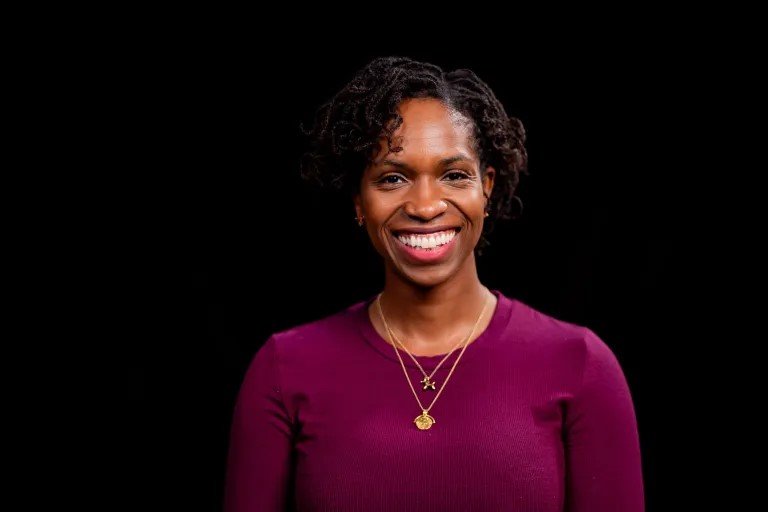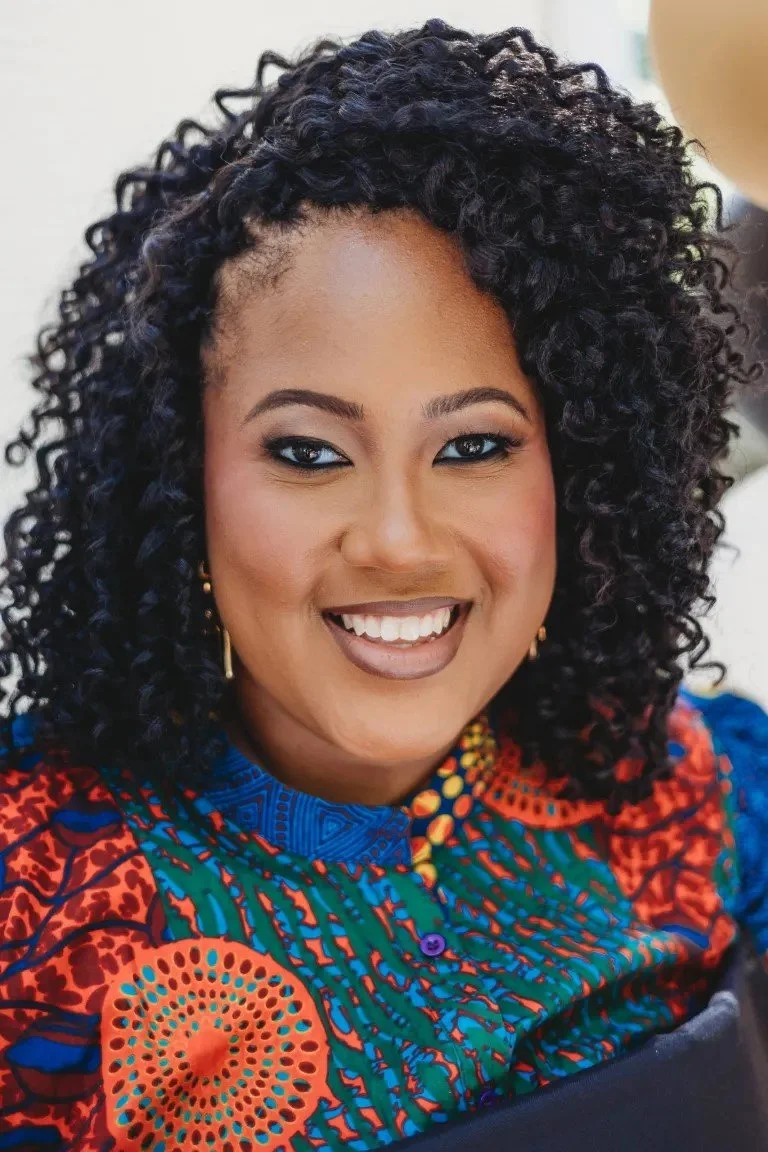There’s Still Joy in End-of-Life Care
Credit: Westend61 via Getty Images.
Most people in their 20s aren’t thinking about caregiving, but four women told us how they cared for a loved one or strangers.
By Anissa Durham
Caregiving is an act of love and sacrifice. But for young Black women, it’s often summed up as just being “a good daughter.”
More than 100 million Americans provide care to a child, parent, or relative. And about half provide care to a spouse, elderly parent or relative, or special needs child, according to a report by Guardian. But for Black folks, the burden of doing so is often heavier.
Due to disparities in education, housing, and nutrition, and less access to health insurance, — along with the “weathering” that accompanies racism-related stress — Black Americans experience higher risk and rates of chronic disease. Which means, Black folks may get sick sooner than their counterparts and make younger generations, often women, more likely to become caregivers.
In a 2021 report, Black family caregivers represent 14% of the estimated 48 million unpaid family caregivers in the U.S., with Black women making up a little more than half of this group, according to the American Society on Aging.
Overall, women are two times more likely than men to say they’ve left the workforce to keep up with caregiving responsibilities. And nearly 50% of caregivers are either Millennials or Gen Z, according to the Guardian report.
But it’s not just about who is providing the care. The mental, physical, and financial toll it takes depends on the type of caregiver. Those who care for a special needs child report higher rates of fair or poor health compared to adults who care for a sick or elderly adult. However, adults who care for a sick or elderly adult report higher rates of fair or poor mental health compared to other caregivers.
While the data provides a snapshot of what caregiver’s experience, statistics only tell part of the story. We spoke to four young Black women to understand the lived caregiving experience. Some have cared for a loved one others are professional caregivers.
We wanted to know, how do they manage their responsibilities? How do they navigate their grief? What joys have they experienced while caregiving? And what is their best piece of advice?
Here are their stories in their own words, edited for brevity and clarity.
‘Medical racism is real.’
Alyse Dunn, Manhattan, 38, founder and CEO of CareCopilot
Courtesy of Alyse Dunn.
My sibling and I cared for both of our aging parents for eight years. I was a caregiver from age 26 to 34. Our dad was diagnosed with multiple sclerosis in the early 2000s, and it got to where he needed more help. He was on hospice for the last six months of his life. Then our mom got diagnosed with Alzheimer’s shortly before our father passed away. Dad died in 2014, and mom died in 2020.
A lot of people who find themselves in this situation, when you know this is something you have to do, it’s like a part of your brain shuts off and you just go straight into execution mode. You don’t spend a lot of time or emotional energy thinking about how you feel or how you can protect yourself during it. I need to execute and that’s what I did.
It wasn’t until my mom passed away that I was able to really process a lot of my feelings around what happened. There was a lot of anger and frustration along the way. I wasn’t thinking that critically for those eight years. It was just get up, go to work, make sure I didn’t get fired, make sure mom or dad got what they needed, rinse and repeat.
I tried in-person support groups for a while at the New York Presbyterian Hospital. I ended up not attending for very long, because it was pretty off demographically for me. It was like an old money neighborhood, not very racially diverse. To be frank, I was going to these caregiver support group meetings, and it was me plus a lot of older white people who are taking care of their spouses. It was pretty isolating for me.
Now, I work with caregivers and my situation is not unique. One thing I found is that Black and Brown individuals, due to medical racism, we do tend to need more help in life. Unfortunately, a lot of people in our community just don’t have as many healthy years as some of our less diverse counterparts.
In those eight years, my sister and I never really found anything or anyone that made our experience of caregiving any easier. So, I left a great job I loved as a senior software engineer at Venmo to start my company, Care CoPilot.
One piece of advice I would give to anyone is not to underestimate how much this costs. Do not overestimate how much health insurance will pay for. Speak with an accountant or a financial advisor … to start getting the lay of the land. It’s just so painstakingly expensive.
For Black caregivers, because of medical racism and other issues, a lot of people in our community need help earlier. I was in my late 20s taking care of mom and dad, when all my white friends’ parents were taking care of them.
Any time my sister and I took our parents to the doctor or the emergency room, we made it very clear we were college-educated professionals who were going to ask tough questions. We were going to be popping in and making surprise visits.
We were also fortunate that both of our parents happened to be retired physicians. It’s a little bit of an ick to flaunt that and everyone does not have that privilege. But if you have any of that, now is the time to use it to make sure your loved ones get the best care possible, because medical racism is real.
My dad, unfortunately, spent the last few years of his life in a lot of discomfort and pain. Watching my parents go out the way they did, it made me so so grateful for those little things. It’s really instilled in me a spirit of not playing it safe when it comes to life. I’m not playing it safe. I’m playing to win.
Give yourself some grace.’
Jessica McGlory, New York City, 33, CEO of Guaranteed
Photo of Jessica McGlory, courtesy of McGlory.
I was a primary caregiver for my dad five years ago. I was at a family reunion in Chicago, and when I touched down in New York City, I got a phone call from my sister, saying dad had a heart attack and he was in critical condition.
So, I rushed back to Chicago. When I was about to get on another flight, I got another call from my sister saying they had to bring him back again. So, she didn’t know if he was going to be there when I landed. Fortunately, he did survive that. But he stayed in the hospital for almost two weeks.
It was truly one of the most overwhelming experiences I’ve ever had. One day, a doctor came and spoke to my family and said he needed to go into hospice care. That is how I learned my dad was dying. He had a double heart attack in August of 2019. He died Sept. 5, 2019. I was 28 years old.
I can genuinely say I did not take care of my mental health. Every day was so surreal. I was not only designated as his caregiver, but he also decided to make me his health care proxy. I’m the youngest of my siblings. And I will never know why he picked me. It dawned on me that I was in my 20s. I saw the entire situation flash before my eyes. It was pressure filled and heavy.
I didn’t really have the support system in place. Since I was the first of my closest friends to have a parent die, none of my friends knew what to do. So, their solution was to not talk about it. My best friends were local, and none of them asked where the funeral was or showed up.
About four months later, one of my best friends called me and he said ‘I wasn’t there for you, I’m sorry.’ I needed to hear it. I did need that apology. If he had not done that, I would have never spoken to him much again.
I genuinely believe that if this person is your friend or loved one, you should be able to know them well enough to say something. I don’t like to let people off the hook. It is far more often that the person feels uncomfortable. So instead, the solution becomes I won’t do anything. And there is no one who can convince me that’s the solution – to do absolutely nothing. It doesn’t even make sense.
I wish people would be more willing to talk about death and dying. The burden of not being able to talk about it is so great on the people who are working through it. We could think of it more towards a path of celebration of life, versus this grim end that none of us want to have.
It took me two years to talk about my dad’s death. And the fact that I really didn’t have to, tells you how much people did not want to talk about it. Sometimes I feel absolutely fine and other times it’s like a ton of bricks. It never really goes away.
I learned that there are a lot of different reactions to death and dying. If you judge how people react, you’re not able to fully understand grief. You have to allow others to grieve how they need to. This has helped me to not have resentment.
‘I’m a sucker for the small things.’
Alexa Martinez, Orange County, CA, 34, home health aide and caregiver
Courtesy of Alexa Martinez. Graphic design by Anissa Durham.
I have been in the health care world, specifically geriatric care, since I was 19. I fell in love with it. I love sitting down with them and hearing stories about their upbringing and being able to time travel.
It can be stressful if you don’t have certain tools implemented in your routine. Self-care is so important. Whether it’s going to the spa … or some type of activity, I enjoy dancing. Balancing it all is really an art form. In the past, there were times I was working 80 hours a week, and the burnout can be serious.
This type of profession, you can’t do this type of work without patience. I’ve had clients who were a little on the aggressive end. Due to their ailment, they may not remember as much. But I’m a sucker for the small things, just a smile or word of encouragement can make a difference in someone’s life.
Coming into work like this you gotta have a love or passion for it. You’re responsible for people, you want to make sure you are reliable. They’re counting on you. Sometimes everybody is just trying to find a job, I get that, but you have to be a people person.
Compassion has brought me so far and given me so many blessings in life. You have to be human to do something like this, it has to come from the heart. You can’t really do it and think about the paycheck at the end of the week. It’s so much bigger than that.
‘Caregivers are actively losing someone every single day.’
Jessica Guthrie, Fredericksburg, Virgina, 36, caregiver, advocate, and educator
I am the full-time caregiver of my mother, Constance, who was diagnosed with early onset Alzheimer’s disease in 2014. I was 26. As an only child and daughter of a single mother, I became her full-time caregiver. At the time I was living in Dallas, and she was in Virgina, so I started out as a long-distance caregiver. I moved back home to care for her and work from home in 2019.
I am a young person early in my career trying to figure out who I want to be, and now I’m hit with how do I help my mother through this? How do I protect her dignity? How do I ensure that she is safe? This is all the stuff that’s going through my head … my peers at 26 were not talking about caring for a parent.
Photo of Jessica Guthrie and her mother Constance. Courtesy of Guthrie.
So as a young Black solo caregiver navigating a lot of this by myself, I didn’t know the resources and levers to pull. When I first started this journey, I did not give myself the space to feel sad. I hit the ground running. I didn’t know that my feelings of loneliness, insomnia, and feeling like no one understands — it was all grief.
I’ve been carrying around a lot of grief from the very beginning. Grief for who I was. Grief for my mom and how she was changing. Grief for our relationship as mother daughter. I’ve been fortunate to care for my mom for the last 10 years and see her through every evolution of Alzheimer’s disease. She’s now in the later stage, she’s fully bed-bound, fully incontinent. She depends on me for every sip of water, and every bite of food.
And while she’s at the end, my mother is still here.
Photo of Jessica Guthrie and her mother Constance. Courtesy of Guthrie.
In the beginning, I didn’t say very much. I kept it all to myself. I bottled it up. No one was talking about grief. It wasn’t until my mom started needing more help that I actively sought out and shared with other people. This allowed people to show up for me and to support me.
I’ve gotten good at knowing when my energy is being depleted and I’m heading towards burnout. I’ve got strong strategies for my own well-being: fitness, meal prep, meditation, and prayer, so that I never feel completely overwhelmed and paralyzed.
I can say misconceptions about me, is people think I just have it together. They think you don’t need help or support or someone to show up for you. Especially with Alzheimer’s, being a long-haul disease, people run in the opposite direction. I was lonely. I am lonely. People don’t come around, unless you specifically ask for it. People stop calling. People stop checking in.
Most caregivers are drowning and need someone to toss out a life raft. My greatest struggles, honestly, have been about navigating the health care system, being believed and trusted, and listened to the first time. I have to defend and make a case for why my mom might need something, like liquid medication over pill form.
I am always in advocacy and defense mode, especially as a young Black solo caregiver, because to them I don’t know what I’m talking about. In reality, I’m the expert in my mom, no one else is.
It is an active choice to choose joy. I am intentional about seeing joy even in the mundane things. When you think your mother’s dying, every moment feels so precious. I put her in hospice in 2022 and its 2024, my mom is still here.
I look at every day as magic time. What brings me joy is watching my mom light up when she hears my voice. What brings me joy is getting my mom out of bed and washing and braiding her hair. What brings me joy is being able to sit next to my mom and feed her a full meal. That 70 minutes of concerted time between the two of us, it’s a gift to be so close.
Courtesy of Jessica Guthrie.
Imagine if we supported and saw caregivers as active grievers. Caregivers are actively losing someone every single day. You are constantly grieving. I need people to show up for me as an active griever. Showing up doesn’t have to be complicated.
What I really care about is that friends don’t abandon the caregiver. What hurts the most is when invites stop, or people assume that I can’t come. You don’t get to take my agency away, that’s not fair.
My advice to young Black caregivers is to take a deep breath. A diagnosis and starting this journey does not mean that the end is tomorrow. The second piece of advice is to speak up. You might not know what you need. It’s OK to be loud. Because being loud opens the doors for people to show up for you when you least expect it.
You don’t need to be a superwoman. There is no trophy. There is no award for being an outstanding caregiver. So, that means delegate. Care isn’t meant to be done alone. Care is a community effort.
Too often, Black women don’t even identify as caregiver, because you’re just being a good daughter. I want people to own the title of caregiver. When you own the title, you open yourself up to resources and support. White people know how to take advantage of resources. So, don’t shy away from the title of caregiver and take advantage of what’s around you to best care for your person.







